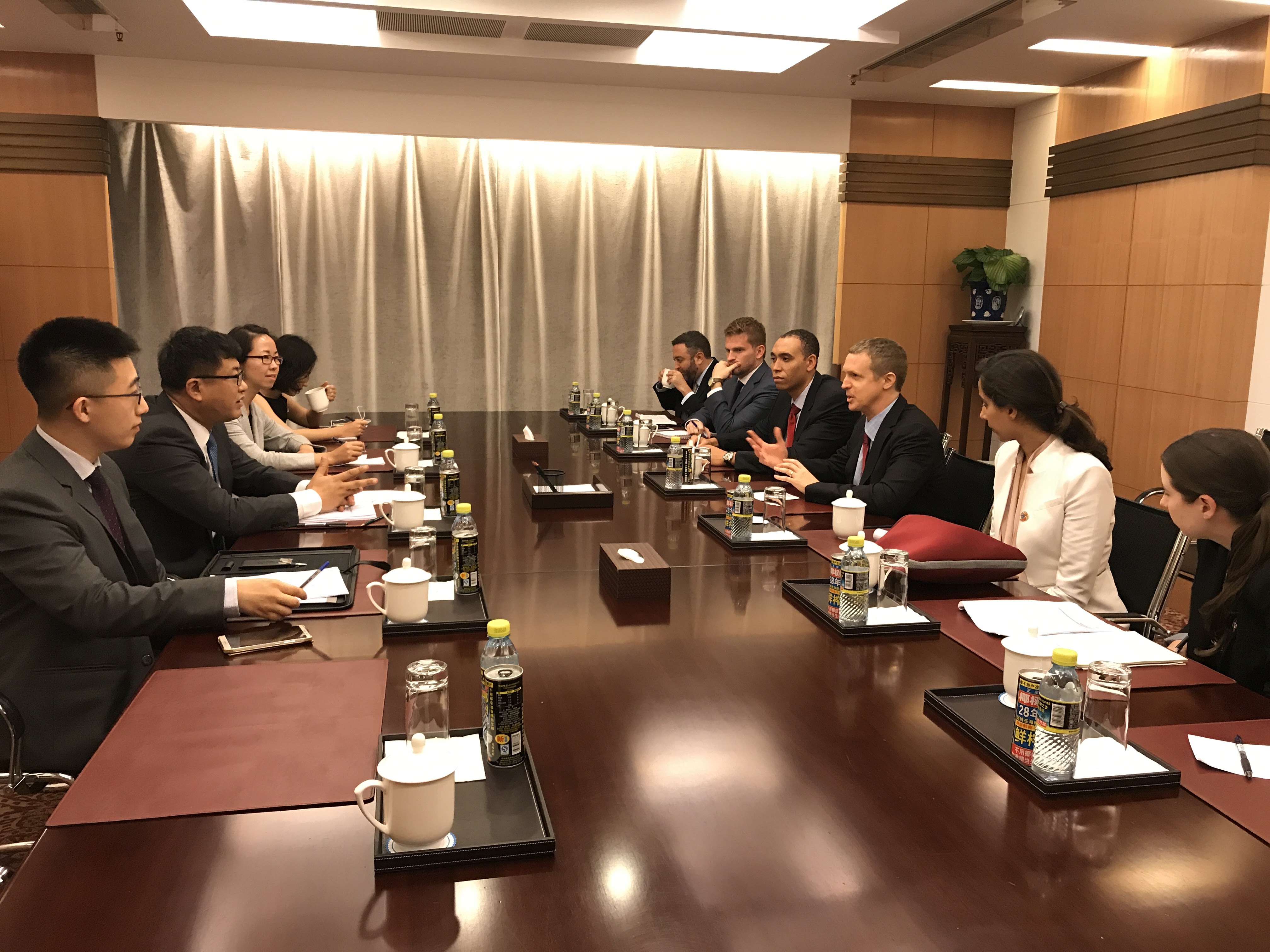From August 26 to September 2, 2017, AFPC led a delegation of mid-career foreign policy experts for a research visit to China. The delegation was headed by Mr. Lyle J. Morris, a Senior Policy Analyst from the RAND Corporation. The other members of the seven-person delegation were young leaders from several policy organizations, the private sector, and committee and personal staff from the U.S. Congress.

During their visit to Qinghai, delegates gained an understanding of the minority policies in the region, the local economic and security situation, and the role of China’s One Belt One Road (OBOR) initiative in the West.
While in Beijing, the delegates engaged with senior officials from the Ministry of Foreign Affairs, the State Oceanic Administration (SOA), the National Development Research Council, the China Institutes of Contemporary International Relations (CICIR), the U.S. Embassy in Beijing, and the Vice Minister of the International Department of the Central Committee of the CPC (IDCPC). The discussions covered a wide array of topics including bilateral relations between the U.S. and China, OBOR, the then-upcoming 19th Party Congress, North Korea, and Chinese economic and security reforms. Debating the North Korea issue was particularly interesting as Chinese officials highlighted the fact that previously DPRK leaders did not believe obtaining nuclear weapons was a necessity, but rather a bargaining chip for negotiations with the United States and other countries.
However, they said, Kim Jong Un has now staked his legitimacy on the development of a nuclear weapons program, marking a major strategic military and policy change. Since the DPRK has already crossed the nuclear weapon threshold, this shift in policy significantly complicates the ability to denuclearize the peninsula.
